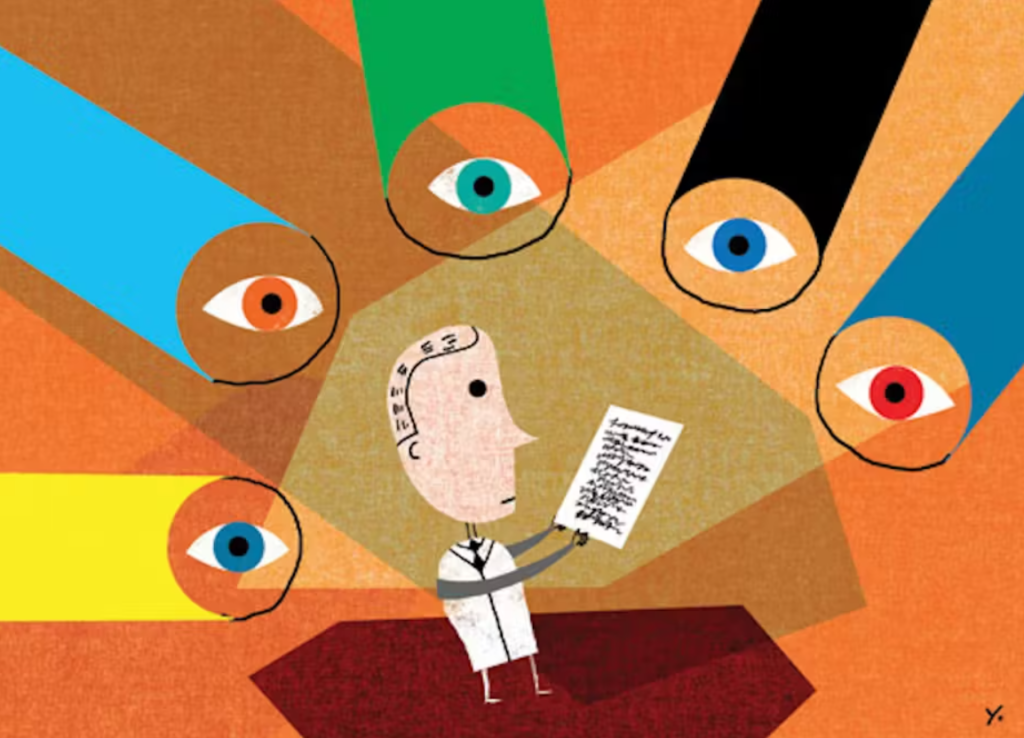
Strengthening the Trust in Research: The Power of Peer Review
Strengthening the Trust in Research: The Power of Peer Review https://opusproject.eu/wp-content/uploads/2023/11/1235123-1024x738.png 1024 738 Open and Universal Science (OPUS) Project Open and Universal Science (OPUS) Project https://opusproject.eu/wp-content/uploads/2023/11/1235123-1024x738.pngResearch is like a journey into the unknown, with scientists exploring new territories to unlock the mysteries of the world. To ensure that these explorations are trustworthy and reliable, scientists rely on a process called “peer review.” This essential step in the research journey plays a crucial role in upholding the integrity of scientific investigations.
What is Peer Review?
Peer review is like having a team of experts check the work of other scientists before it gets published. Imagine you’ve written a story, and before it goes into a book, a group of people who really understand stories reads it. They make sure your story makes sense, that you used the right words, and that your ideas are clear. Peer review does something similar for scientific research.
How Peer Review Works:
- Submit and Check: When scientists finish their research, they send it to a scientific journal. The journal editor then chooses other scientists, called peers, to review the work.
- Expert Evaluation: These peers are experts in the same field as the research. They carefully read through the research, checking if the methods are sound, the results make sense, and the conclusions are supported by the evidence.
- Feedback and Improvement: The peers provide feedback to the original scientists. This feedback helps improve the research, ensuring it’s accurate and reliable. It’s like having a friendly guide suggest ways to make your journey smoother.
- Decision Time: After any necessary changes are made, the editor decides whether the research is ready to be shared with the world. This process adds a layer of quality control, making sure that only the best and most trustworthy research is published.
Benefits of Peer Review:
- Quality Assurance: Peer review acts as a filter, making sure that only high-quality and well-conducted research gets published. This helps prevent the spread of misinformation and ensures that new discoveries are based on solid ground.
- Spotting Mistakes: Having multiple sets of eyes on a piece of research increases the chances of spotting mistakes. This collaborative effort helps catch errors, improving the accuracy of the findings.
- Building Trust: When research undergoes peer review, it gains credibility. Other scientists and the public can trust that the work has been thoroughly examined and meets the standards of good science.
- Encouraging Improvement: Peer review is not just about saying yes or no. It’s about helping researchers make their work even better. This constructive criticism fosters a culture of continuous improvement in scientific exploration.
Challenges and Evolving Practices:
While peer review is a powerful tool for ensuring research integrity, it’s not without its challenges. Some argue that the process can be slow or that biases may exist. Scientists are exploring new ways to make peer review more efficient and inclusive, such as open peer review and post-publication review.
Peer Review as the Compass for Trustworthy Research
In the vast landscape of scientific exploration, peer review stands as a beacon of trust and reliability. By enhancing research integrity through this collaborative and rigorous process, scientists contribute to the collective knowledge that shapes our understanding of the world. As we continue to refine and adapt peer review practices, we strengthen the foundation upon which scientific progress stands, ensuring that the journey into the unknown is guided by the principles of honesty, accuracy, and excellence.
Photo via The Conversation
- Posted In:
- Open Science News




